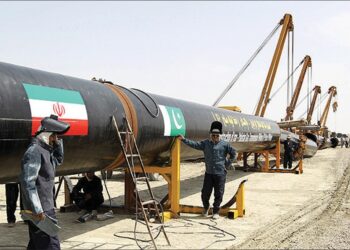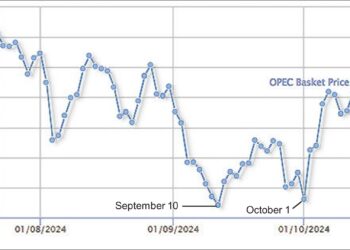May 26, 2018
In what could carry a message for Iran, Iraq has put 11 oilfields up for auction and drew bids from only a solitary major international oil firm. Five of the 11 fields even failed to draw a single bid from anyone.
Iran been postponing a major oilfield auction as moderates and conservatives battle over the terms to be laid down in the auction. But Iraq’s experience April 26 suggests major international firms may have little interest in the region.
Only Italy’s Eni submitted offers, bidding on two fields, but failing to win either.
The Iraqi Oil Ministry held an auction with 11 blocks on offer near the borders with Iran and Kuwait and in offshore Persian Gulf waters.
Five of the exploration blocks failed to attract any bids. Three fields went to Crescent Petroleum, an Iraqi-owned, UAE-based firm, two to China’s Geo-Jade, and one to China’s United Energy Group.
Fourteen companies had expressed interest and bought a package containing the bidding documents and terms for the 11 blocks, the ministry had said. But most didn’t bother to bid in the end.
A combination of factors was behind the failure by five blocks to draw bids, said Abdul Mahdy al-Ameedi, director general of Iraq’s Petroleum Contracts and Licensing Directorate. Some cover former battlefields, some are hard to access and the one offshore plot needs more data, he said. The old battlefields contains mines and unexploded ammunition.
Iran also has put a priority on working fields on the border that are shared with neighbors. Many of them also were battlefields in the 1980-88 war.
The contracts on offer by iraq excluded oil by-products from the companies’ revenue, established a link between prevailing oil prices and their remuneration, and introduced a royalty element.
Oil companies operating in Iraq currently receive a fee from the government linked to production increases, which include crude and oil by-products such as liquefied petroleum gas.
OPEC’s second-largest producer after Saudi Arabia, Iraq decided to change the contracts after a glut caused oil prices to crash in 2014, reducing Baghdad’s ability to pay such fees.
Companies including BP, Exxon Mobil, Eni, Total, Royal Dutch Shell and Lukoil have helped Iraq expand production in the past decade by over 2.5 million barrels per day to about 4.7 million barrels per day (bpd). Iran’s output the past year has averaged 3.8 million bpd.
The semi-autonomous Kurdistan Regional Government produces oil and gas from fields it controls in northern Iraq under a production-sharing model that is more profitable to companies. Iran forbids production-sharing agreements as an ideological decision.
The new contracts offered by Baghdad will also set a time limit for companies to end gas flaring from oilfields they develop.
Iraq hopes to end gas flaring by 2021. Flaring costs the government nearly $2.5 billion in lost revenue each year and could cover most of its unmet needs for gas-fired power, according to the World Bank. Iraq is now buying gas from Iran to produce electricity.
The remuneration is before tax and after the payment of royalties and cost recovery. Royalties are set at 25 percent of total revenue of the field and tax at 35 percent of the company’s income.
For example: if the revenue from the field’s production is $1,000, the operating company’s costs $100 and its percentage remuneration 20 percent, it will first pay $225 to the government (a quarter of $900, which is the revenue minus cost) in royalties, and split the remaining $675 with the government along the percentage agreed, taking $135 and giving the government $540.
The company then pays 35 percent in tax on its $135, or $47.25, and is left with $87.75 in net income.

















